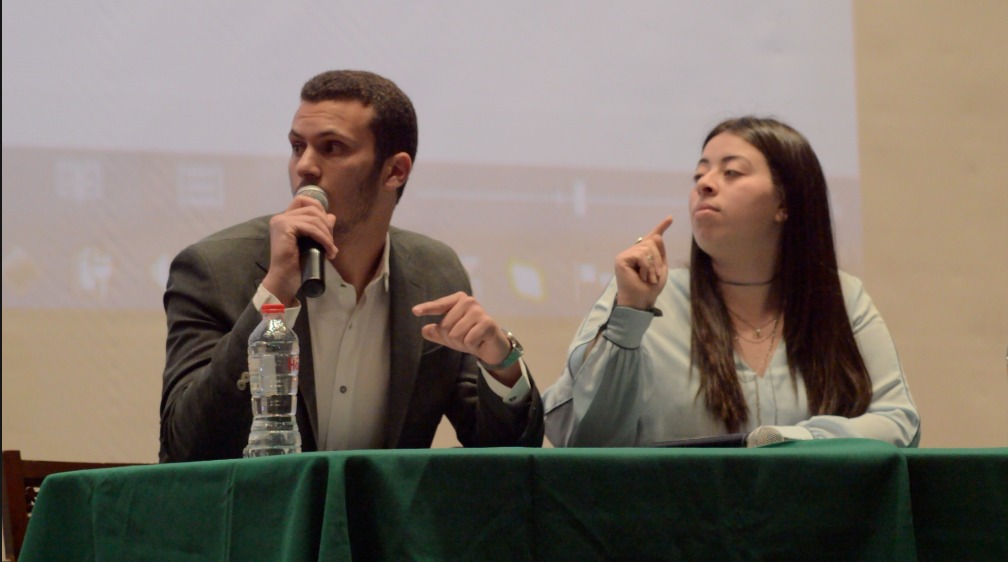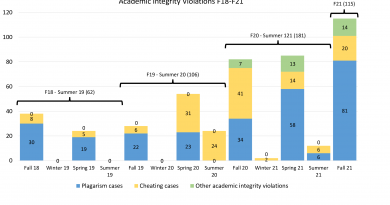Student Union President Saeed Zakaria Responds to Charges of Alleged Sexism
By: Dania Akkawi
Follow @daniaakkawi
Newly elected Student Union President Saeed Zakaria was dogged by controversy following his remarks, which some alleged were sexist, made in the days prior to the election on April 16.
Fierce debate erupted on the Rate AUC Professors Facebook page and other social media regarding a campaign brochure promise by Zakaria and Vice-President Menna Emara’s to work for the “empowerment of women through men”.
Many student and organizations on campus called out the campaign for being anti-feminist.
“What we need now is a union that takes into account the diverse and subjective experiences of its constituents and does not advance a heteronormative, patriarchal status quo that has failed time and again to achieve equality. There is always room for progress. Now, the cause is more relevant to the student body than it ever was,” read a post on April 16 by Heya: The Feminist Initiative.
Other posts by women on campus sarcastically asked Zakaria, or alternately their male friends, to “empower” them to accomplish mundane tasks.
A statement by his campaign published the same day said that the statement on its own shows “gender-ignorance and suggests that women are subordinate to men.”
Their intention was to combat this very stereotype.
“One way Saeed Zakaria and Menna Emara plan on tackling this stigma is through educating men in AUC that this ideology is ignorant and definitely not true,” their statement read.
Since then, Zakaria spoke to The Caravan to clarify the statement and what he said was a typographical error in the brochure.
“I am not a feminist. I meant to say that because I am not a feminist. Feminism is different from the empowerment of women…but this does not mean that I do not believe in the qualifications of women,” he said.
Zakaria added that the statement “empowering women through men” was written incorrectly due to a typing mistake.
The original meaning was that they wanted male leaders to give trainings to other males in order to emphasize the importance of the role of women, he told The Caravan.
Zakaria added that the AUC community is comprised of 60 percent women and that without them, the SU would not function at all because women possess qualifications that men do not.
“I think Menna has qualifications that I don’t have. Females have qualifications that males don’t have even if males are hard workers,” he said.
“I am genuinely happy to hear what people are saying about this because I like to hear people’s opinions.”
In terms of the controversy surrounding the Red Camp, an informal political group on campus, not allowing women to join, Zakaria said that there are Red Camp leaders who would be better equipped in answering this question, as he is only a member.
However, he said that Red camp does, in fact, support women.
“There are 15 senators who are female. Amr El Alfy had a female Vice-President, Malak Rostom. Now, we have Menna Emara and hopefully there will be more.”
Representation, however, is not only about gender. With the Red, Black and Blue camp at AUC, their representation in the SU is also a matter of concern that Zakaria spoke about.
“The Red, Black and Blue Camps must be integrated into the SU because the camps all have different mindsets.”
Zakaria shared that recruitment will not be from any certain camp that has a majority in the Student Senate.
“We never put gender or political affiliation as a criteria. We only put perseverance as a criteria. Even if you don’t have qualification, if there is potential, that’s great. The role of the Union is to develop that potential.”
In terms of maintaining the balance between the different functions in the SU, such as representation, entertainment and services, Zakaria said that everything will be working simultaneously.
“I do not believe that there is a top priority in the Union. I believe that everything works together,” he said.
Although Zakaria was previously the Chair of Events and Entertainment, he said that this does not mean he was not involved in the SU and its functions as a whole.
“People assumed I wouldn’t be able to represent. People assumed that I am all for entertainment…I was always part of the SU, even if my job description said ‘entertainment of the student body’.”
To ensure success, Zakaria and Emara plan to be allocating specific time slots during assembly hour to listen to the student body and hear their demands.
Zakaria also stressed on communication and transparency as key elements in his plan so that the student body is aware of all of the discussions taking place between the SU and the administration.
“The most important thing is what students want and if they ask for something that doesn’t happen, they need to understand why at least … For example, the tuition fees. I’ll present the budget so that students know where every pound is going.”
The question of how to handle the tuition fees is problematic because it also requires a detailed evaluation of the quality of education as well, Zakaria added.




